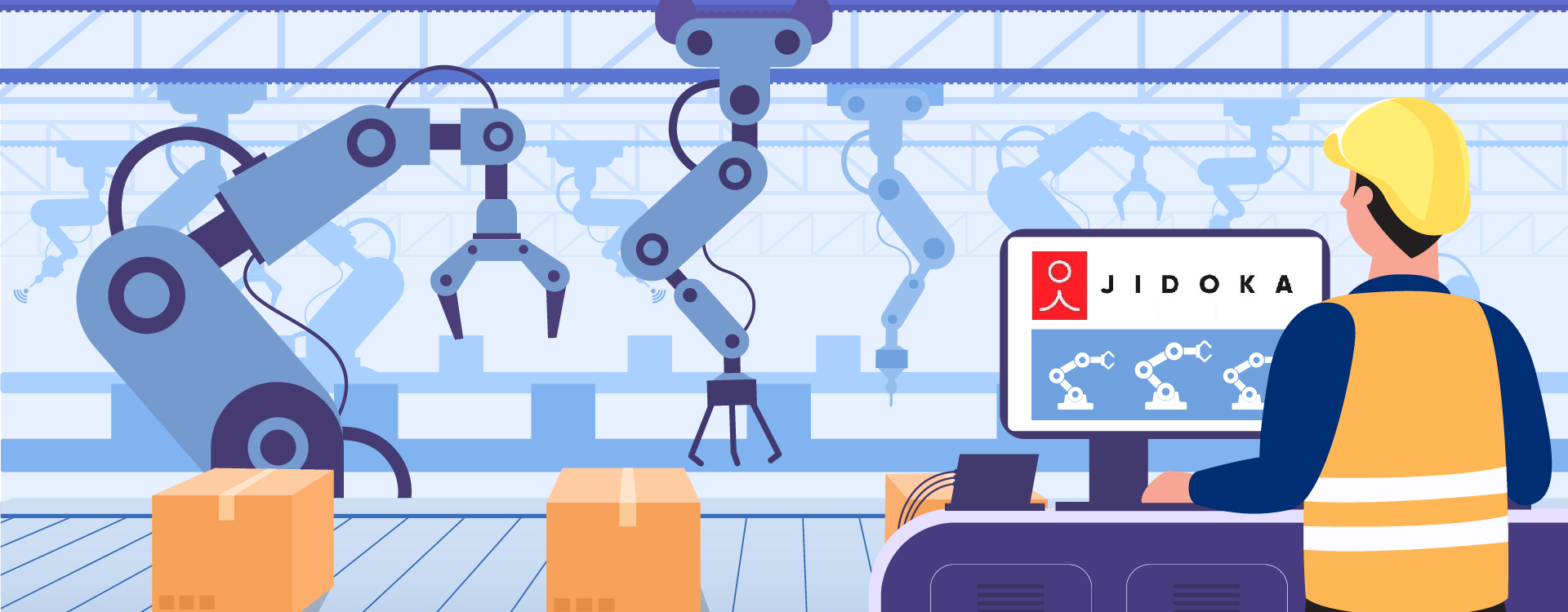In the manufacturing space, stringent quality control measures form the backbone behind the successful working of products. Any compromise in the quality control process of finished products can cause harm to the consumer which can be life-threatening or if not can result in heavy returns, low sales hence maligning the image of the company due to its inferior quality. According to a report from AT Kearney, India’s contribution to the world’s manufacturing output is a meagre 2 percent which is a tenth of what China contributes. Several Indian manufacturers have not invested in product development or quality control capabilities that result in product rework and returns thus harming productivity.
In 2018, Sekar Udayamurthy, Krishna Iyengar, and Vinodh Venkatesan founded Jidoka Technologies to revolutionise the outdated quality control process by automating it with visual quality checks at high speed by leveraging Deep Learning, AI/ML, and Analytics in the manufacturing vertical. Jidoka is a Japanese word meaning automation with a human touch.
The Tech Magic in Jidoka
Jidoka’s hawk-eyed automated cognitive QC solutions enhance the efficiency in quality checks with a 98 percent accuracy by mirroring human reasoning in defect detection, thereby increasing throughput and reducing wastage by 30 percent. Jidoka’s QC solution has both hardware and software components. The hardware comprises of:
- Huron: Performing quality checks for large volume complex products in a rotary table design.
- Tigris: It is a twin linear conveyor system with a part flipping mechanism that is ideally suitable for flat and lightweight products.
- Miyake: It is a standalone inspection station with manual loading and unloading with selective checking. It is an ideal machine for complex surface inspections where it is cumbersome for the human eye to inspect the anomalies.
‘‘
According to a report from AT Kearney, India’s contribution to the world’s manufacturing output is a meagre 2 percent which is a tenth of what China contributes.
The Core Tech Stack of Jidoka
Jidoka technology’s patented software platform Kompass is an AI-powered defect detection and analytics software that enables manufacturing companies to detect defects visually in real-time. It provides a turnkey solution that seamlessly fits into the production line delivering 200-220 decisions per minute. Jidoka’s core tech stack consists of:
- Ubuntu-based platform
- Docker as the main containerisation solution with C++/ZeroMQ/MERN stack for frontend and backend products
- Core data science stack based on Python/Tensorflow/Nvidia CUDA technologies
- In-house custom tools for MLOps
- Developer tools such as VSCode and Jupyter Notebooks
Jidoka’s Road Ahead and Exploring New Business Verticals
Jidoka’s QC solutions have achieved the following within a short span of time:
- 5-10% Increase in defect detection accuracy
- 25-35% Decrease in excess Rejection
- Automated identification of drifts in processes by analysing trends in defects
- 33% Increase in Throughput
It has recently received seed funding worth $340,000 from an anonymous technology entrepreneur. Apart from India, Jidoka is scaling its operations to new markets of North America and Southeast Asia. Currently, offering QC solutions to the automotive sector it aspires to foray into pharma, general manufacturing, electronics and printing, etc.
What is in it for the start-ups offering Quality Control Solutions?
The pandemic has catalysed manifold manufacturing in the health tech and pharma sector for medical devices and medicines respectively, thus stimulating the demand for quality control. As manufacturing will happen in bulk there lies a high probability of product defects whose consequences can be fatal. This is where an automated QC solution comes to the rescue. Efficient quality control will be able to detect defects such as the presence of foreign particles inside strips, missing tablets, colour differences, packaging verification, broken tablets, and surface inspections of medical devices, surgical needles, sutures. Besides the healthcare sector, PM Narendra Modi’s ambition to make India a $5 trillion economy would require best-in-class manufactured products for export in the verticals of automotive, textiles, general manufacturing, electrical components, etc, which signals the need for stringent quality control solutions.




